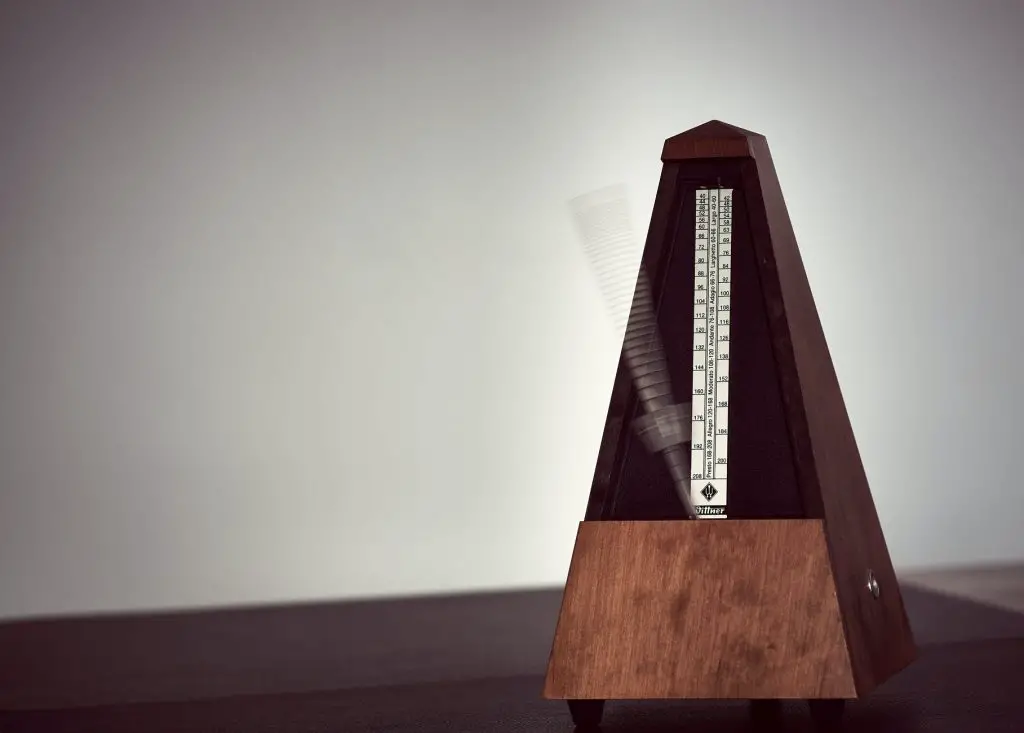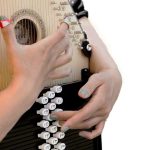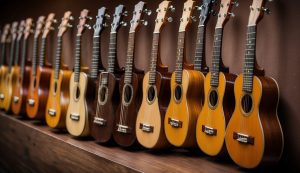Folkstrings.com is reader-supported. When you buy through links on our site, we may earn a small commission.
Are you tired of only being able to strum your guitar while singing? Do you want to learn how to do both at the same time and become the ultimate one-man band? Well, you’re in luck because we’ve got the ultimate guide on How to Sing While Playing Guitar.
In this article, we’ll cover the basics of playing guitar and singing simultaneously and provide tips on how to improve your skills. We’ll also introduce you to the techniques used by some of the most famous singer-songwriters, such as Ed Sheeran and Taylor Swift.
Whether you’re a beginner or an experienced musician, this article has something for everyone. Get ready to take your musical skills to the next level and become the ultimate performer. Let’s dive into the world of singing while playing guitar!
Choosing the Right Guitar
When it comes to singing and playing guitar at the same time, choosing the right guitar is important. Here are a few things to consider:
- Acoustic vs. electric: Acoustic guitars are often preferred for singing and playing because they have a natural sound that complements the voice. However, electric guitars can be easier to play and offer more versatility in terms of sound.
- Body size: The size of the guitar can affect your comfort level while playing and singing. If you have a smaller frame, a smaller guitar may be more comfortable to play. If you have a larger frame, a larger guitar may be more suitable.
- Neck shape: The shape of the guitar neck can also affect your comfort level. Some people prefer a thinner neck for easier grip, while others prefer a thicker neck for more support.
Mastering Basic Guitar Techniques
If you want to sing while playing guitar, you need to master some basic guitar techniques. Here are two important techniques that you should focus on:
Strumming Techniques
Strumming is one of the most basic guitar techniques. It involves brushing or striking the strings with a pick or your fingers. To strum properly, hold the pick between your thumb and index finger, and brush the strings in a downward motion. Keep your strumming arm relaxed and move it from the elbow, not the wrist. Practice strumming different patterns and rhythms, and try to keep a steady tempo.
When you’re singing and playing at the same time, you need to be able to strum without thinking about it. This will free up your mind to focus on your singing. Start by practising simple songs with a basic strumming pattern. Once you feel comfortable, you can try more complex patterns.

Fingerpicking Techniques
Fingerpicking is another important guitar technique. It involves plucking the strings with your fingers instead of using a pick. To fingerpick, use your thumb to play the bass notes and your other fingers to play the melody. Keep your fingers close to the strings and use a light touch.
Like strumming, fingerpicking requires practice to master. Start with simple fingerpicking patterns and gradually increase the difficulty. You can find many fingerpicking exercises and songs online.
Remember to keep your hand relaxed and use proper fingerpicking technique. This will help you play a lot more smoothly.
Developing Your Singing Skills
If you want to sing while playing guitar, it’s important to develop your singing skills. Here are some exercises you can do to improve your voice:
Breathing Exercises
Good singing starts with good breathing. Try these breathing exercises to improve your singing:
- Breathe in slowly and deeply through your nose, feeling your chest and stomach expand.
- Hold your breath for a few seconds, then exhale slowly through your mouth.
- Repeat several times, focusing on breathing from your diaphragm rather than your chest.
Vocal Warm-ups for Singing
Before singing, warm up your voice with some vocal exercises:
| Exercise | Description |
| Lip trills | Make a “brrr” sound by blowing air through your lips while keeping them closed. Move up and down your vocal range. |
| Tongue twisters | Say tongue twisters like “red lorry, yellow lorry” or “unique New York” to loosen up your tongue and improve diction. |
| Siren sounds | Make a siren sound by sliding from low to high and back down again. Repeat several times. |
Remember to warm up slowly and gently to avoid straining your voice. With regular practice, these exercises can help you become a better singer and improve your ability to sing while playing guitar.
Putting It All Together
Starting with Simple Songs
Now that you’ve practised singing and playing guitar separately, it’s time to put it all together.
Start with simple songs that you know well, and gradually work your way up to more complex pieces.
Choose songs with a simple chord progression and a steady rhythm, such as “Knockin’ on Heaven’s Door” by Bob Dylan or “Wonderwall” by Oasis.
Begin by playing the chords and singing at the same time, using a simple strum pattern. Once you get comfortable with that, try adding in more complex strumming patterns or fingerpicking. Remember to start slow and gradually increase your speed as you get more comfortable.
Practising with a Metronome

One of the most important things you can do when learning to sing and play guitar at the same time is to practice with a metronome. This will help you develop good timing and keep you on beat while you’re playing and singing.
Start by setting your metronome to a slow tempo, and practice playing and singing along with it. Once you feel comfortable, gradually increase the tempo until you’re playing at the same speed as the original song. This will take time and practice, but with patience and dedication, you’ll get there.
Remember, the key to success is practice. Don’t get discouraged if it takes you a while to get the hang of it. Keep practicing, and before you know it, you’ll be able to sing and play guitar like a pro!
Author Profile
-
Daniel Johnstone is an English writer with a love for stringed instruments from around the world.
He shares his love for these instruments through his writing for folkstrings.com, a website dedicated to all things related to folk string music.
Daniel's passion for music started at a young age, and he has since become an accomplished musician, playing guitar, cavaco, and recently, the harp.
His dedication to learning and sharing his knowledge of stringed instruments is evident in his insightful and engaging blog posts. Whether you're a seasoned musician or a beginner, Daniel's writing is sure to inspire and entertain you.
When he's not playing music or writing, you can find Daniel exploring new instruments and seeking out new sounds to share with his readers.
Latest entries
 AutoharpApril 4, 2024Is Autoharp Easy to Play? Unveiling the Truth for Beginners
AutoharpApril 4, 2024Is Autoharp Easy to Play? Unveiling the Truth for Beginners AutoharpApril 4, 2024What Is an Autoharp Worth? Your Guide to Pricing and Value
AutoharpApril 4, 2024What Is an Autoharp Worth? Your Guide to Pricing and Value AutoharpApril 4, 2024Where Is the Best Place to Buy an Autoharp? Your Top Picks Reviewed
AutoharpApril 4, 2024Where Is the Best Place to Buy an Autoharp? Your Top Picks Reviewed AutoharpApril 4, 2024How Does the Autoharp Work? – Unveiling Its Melodic Secrets
AutoharpApril 4, 2024How Does the Autoharp Work? – Unveiling Its Melodic Secrets




